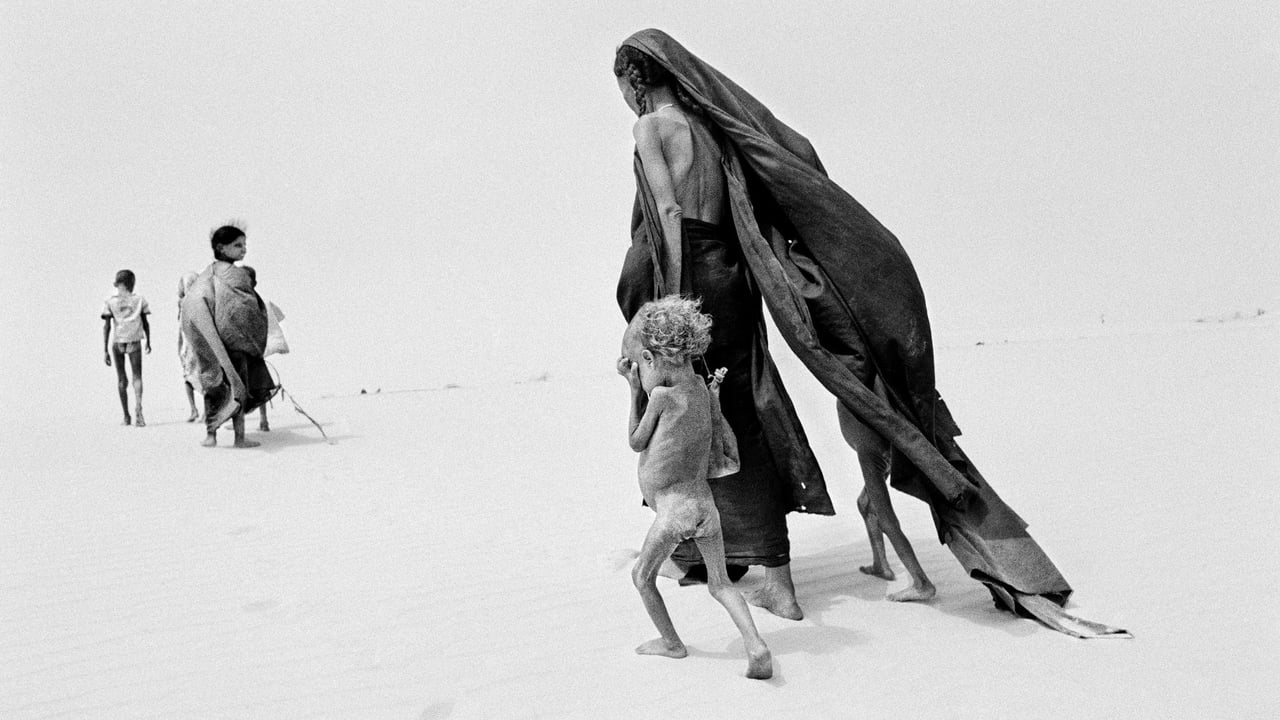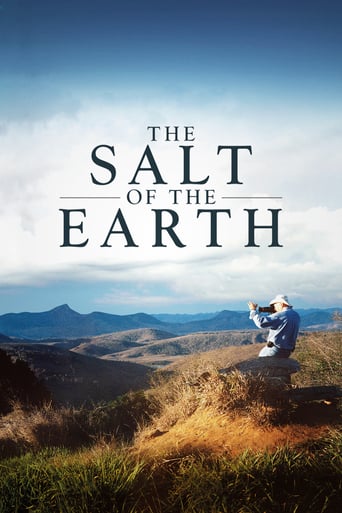Matialth
Good concept, poorly executed.
Myron Clemons
A film of deceptively outspoken contemporary relevance, this is cinema at its most alert, alarming and alive.
Paynbob
It’s fine. It's literally the definition of a fine movie. You’ve seen it before, you know every beat and outcome before the characters even do. Only question is how much escapism you’re looking for.
Lela
The tone of this movie is interesting -- the stakes are both dramatic and high, but it's balanced with a lot of fun, tongue and cheek dialogue.
Joao Guilherme Araujo Schimidt
The Salt of Earth is a movie about pictures of our world, not just photos, but a critical vision of our society, a son to father movie, about how a former economist saw the world thought his camera. This documentary could be just a about a great photographer, but it goes beyond, and show us about the human side of ourself, a side sometimes we forget. To take a perfect pictures may took years, may took risk of life, may took a feeling, but always will need a human instinct to see, what is almost impossible to see for everyone else. The main argument in this movie isn't about how take pictures, but what they means for us, and what it shows, a war, a strong little boy man, a beautiful woman going to die, human greed for gold, or just how the world don't need us to be beautiful. The director show a movie about human nature, in best picture, but not in the best of human, sometimes, the best picture show the worst of human nature. This is the best lesson from this movie, human nature is complex, and sometimes chaotic.
Regina Zervou
Wenders is one of the most challenging directors of our times. Though the last years he seems to have run out of ideas, he can still direct a fabulous documentary when the prime material is a diamond: Salgado, the best photographer of all times.Sebastao Salgado is a legend.He as taken the most deep views on human nature and pain. He has let himself exposed to the extremes of human cruelty and destruction, he has faced poverty and death and this devastated.The pictures taken from his beloved Africa, followed by a concussive description of unknown to us dramas of thousands and millions of people, remind us of what man is capable to do to one another, how no one on this planet can claim innocence.However, the outcome is not despair. Man, and that is the main attribute given to Salgado, always finds his way to hope. The film lyrically leads us from the absolute despair about the future of human kind to the rediscovery of nature and the wild that ends up rendering a deforested piece of Amazonian jungle back to its former state, giving back to nature what was taken from her. Yes, the Salgado family had the strength to do it. Yes, the human kind has the strength to do it.This fabulous story is narrated through the most miraculous black and white pictures and portraits ever taken. A homage to Man and Nature, that is what the movie is about.
pedrocalheirosmenezes
"We are a ferocious animal. We humans are terrible animals. Our history is a history of wars. It's an endless story, a tale of madness." – Sebastião SalgadoDirected by Wim Wenders and Juliano Ribeiro Salgado this documentary goes through the life of the photographer Sebastião Salgado, from its childhood times in Minas Gerais until his current role as an activist and founder of Instituto Terra. Not following the typical poetic and metaphorical style, and sometimes pretentious, that characterizes Wim so much, this documentary follows a simple line, however it's not a light viewing. In fact, it's hard, graphic and even chocking in some parts. Divided between the outside interpretations of Wim and Juliano, they reckon their perspectives were complemented with each other's, Juliano as son of Sebastião and Wim as the outside look, admirer of Salgado's work. But it's when Sebastião analyzes its photographs, the highlight of the film, that we realize who he really is and what he testified, transporting us into an incredible journey of anger, despair and hope.
clarkj-565-161336
Many times a son asks why his father was absent so much when he was young, or perhaps why he is uncommunicative. Later in life he discovers that his father had some special task to do or that he was not able to discuss his work. In the case of Juliano Salgado he discovers first hand what is involved in capturing nature in all its beauty while filming his father at work. Sebastião's many trips to Africa obviously took him away for long periods of time, but the results of his work are a historical record of some of mankind's horrible deeds. The film describes the socio political context of Brazil in the 60s and 70s which is important to understand the trajectory of the young couple in their exile to France and their joint partnership in photography. The black and white scenes of early Brazil and the grandfather's ranch are wonderful. The ending is also well chosen to give us hope for the future, in the successful reclamation of the property by replanting the mata atlântica.

